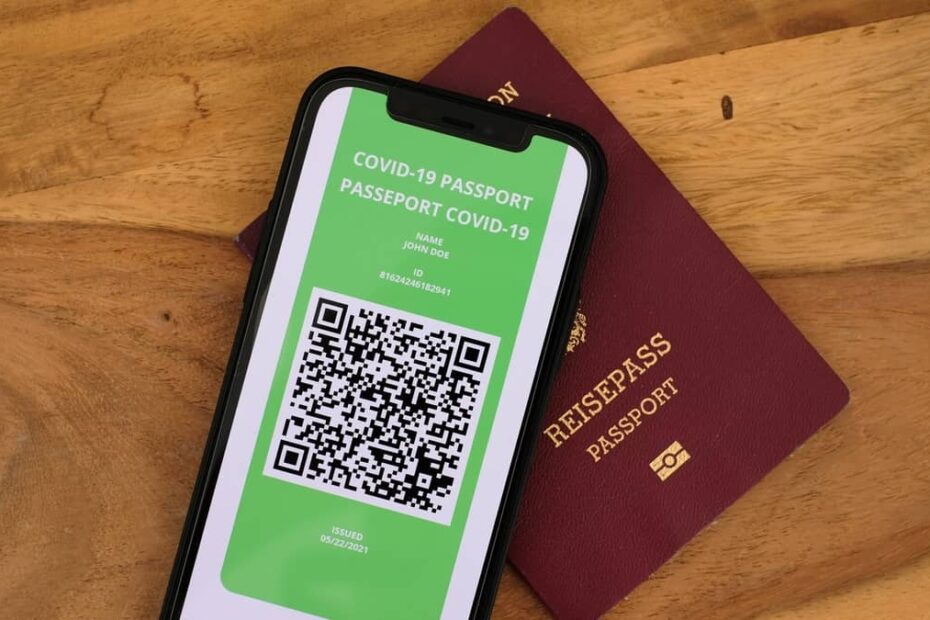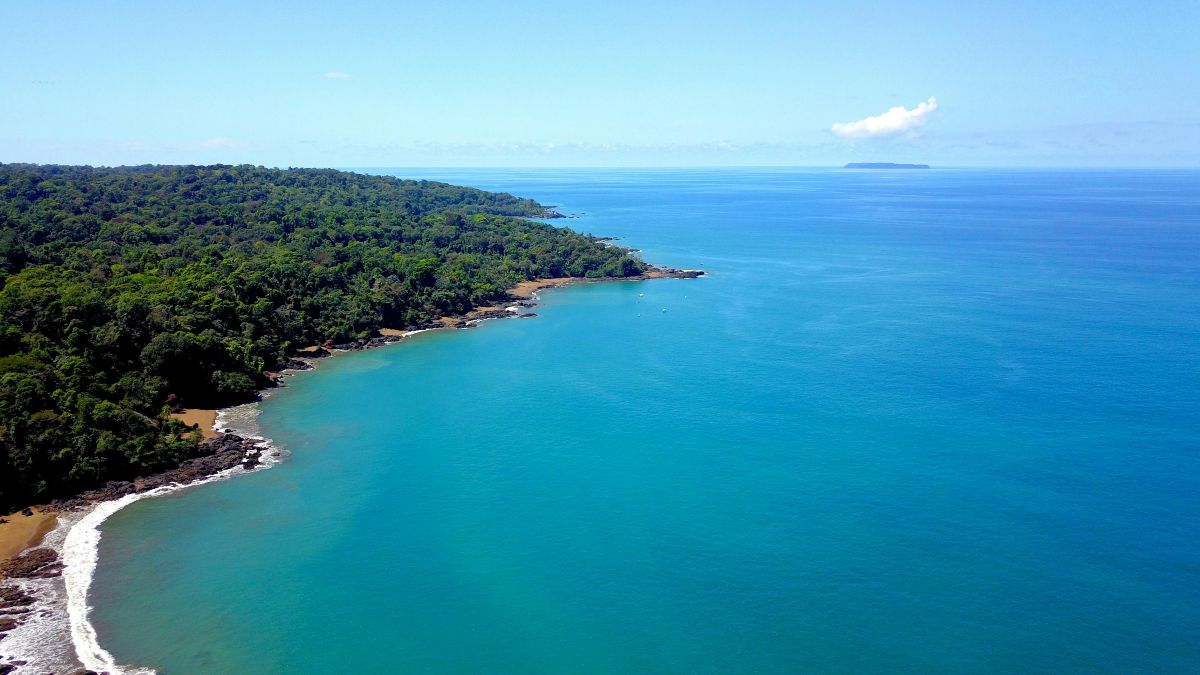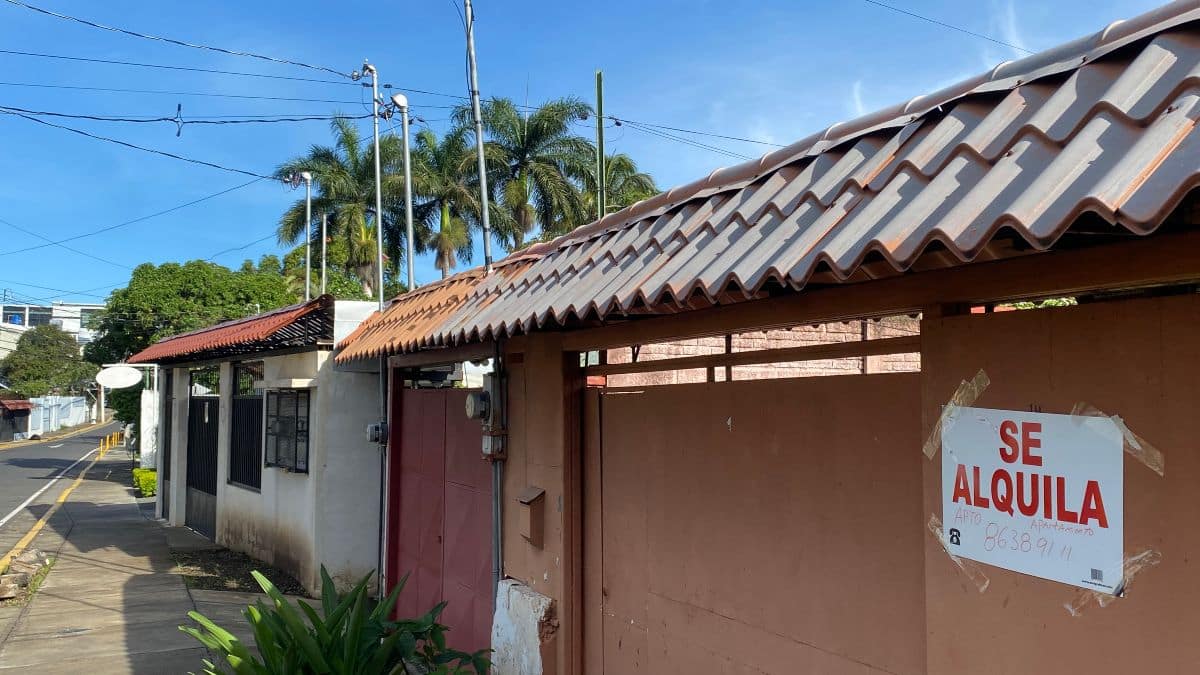The proposed Costa Rica QR code system to only allow fully-vaccinated citizens, residents, and tourists to participate in most elements of society from January 8, 2022 raises more questions than answers, and is attracting some pushback from politicians and businesses alike. We take a look at who is opposing the mandate and why.
We had hoped this would have gone away by now, since we last wrote about the initial October 13 decision to implement QR codes in Costa Rica to only allow vaccinated people into non-essential businesses. With Costa Rica’s vaccination rate at around 70% (partially and fully-vaccinated), and Covid case numbers plummeting, we had cause for hope.
But you know what they say about hope. Since our opinion piece on the matter two weeks ago, things have changed, though. And the plan is seeing some significant pushback from tourism and business communities, and some political figures.
The original announcement on October 13 by President Carlos Alvarado and Health Minister Daniel Salas decreed that the mandate – call it what it is… a mandate – would start on December 1.
Thanks for the article. We were set to go there Jan-February and will be canceling if the mandate goes into effect. We have 12 people that would’ve spent money on tourism and I have to imagine we aren’t alone. Sad.
— Katie Hansen (@freakshowhairdo) October 21, 2021
At the time, President Alvarado said they were starting on December 1 to give people time to get their second doses.
“After December 1, there will be no excuses,” he said (we’re paraphrasing here, but not too much).
Almost immediately after he spoke, the confusion began on a few fronts.
First, there was confusion about how to register your vaccine online to get your certificate which would allow you to get your QR code after November 8. There have long been reports of it taking weeks or even months to get your online certification.
With the mandate starting on December 1, it was clear the website would experience a major overload, adding to an already slow and patchy service. Social media filled up with stories of people fully-vaccinated in July or August still waiting for their certificates.
And then there was the question of tourists.
The mandate doesn’t ban unvaccinated tourists from entering Costa Rica, like the upcoming one in the United States, for example. Tourists can still enter Costa Rica unvaccinated, as long as they pay the health insurance they’ve had to pay since the borders reopened in August, 2020.
They just won’t be able to do much while here.
The mandate decrees that only fully-vaccinated people (citizens, residents, and tourists alike) can take part in, or enter the follow places or events:
- Restaurants (and any place serving food including sodas, cafes, food courts, food trucks, etc.)
- Bars
- Casinos
- Stores and shopping malls (EXCLUDING supermarkets, pharmacies, banks, and any other place deemed essential)
- Museums
- Fitness centers (gyms, yoga studios, pilates, CrossFit, etc.)
- Accommodations (hotels, hostels, cabinas, etc.)
- Places of worship (churches and church activities)
- Events (business, social, academic, etc.)
- Adventure tourism activities (zip lining, rafting, etc.)
- Theaters, cinemas, art galleries, concerts (any place of artistic expression)
- Sporting activities (watching sports or participating in sports)
So if you’re an unvaccinated tourist, or a vaccinated tourist with unvaccinated teenagers (the mandate calls for everyone aged 12 or over to be vaccinated to enter the above places), you can come to Costa Rica but can’t visit a restaurant or stay in a hotel.
The government gave no clear, authoritative answers about tourism, other than to say the mandate included them. It said nothing of the absurdity of allowing unvaccinated tourists to enter Costa Rica, but not allowing them to stay in a hotel or spend money.
This enraged the tourism and hospitality communities, who have already been suffering through the pandemic.
December is the traditional start of the high season, and the expectation was to have a good high season this year.
Maybe not quite as good as a pre-pandemic high season, but good nonetheless. It was to be a restart, a route back to finding some normality in 2022.
These expectations took a blow to the guts on October 13.
Then, on October 22, a reprieve (of sorts) when the government announced it was postponing the December 1 start, and pushing it back to January 8. The reason, they said, was to create a “transition period”, where businesses who wanted to install QR codes could do so, while those who didn’t would need to stick to existing protocols.
One suspects, in reality, they saw how unrealistic the plan was to start in December while many people were still unvaccinated or partially-vaccinated. One also suspects that the problems with registering your vaccine online to get your certificate played a huge part.
Costa Rica has delayed its vaccine mandate until January 8, 2022, and established a transition period that begins in December. #CostaRica #Covid_19 #VaccineMandate https://t.co/ueom6grK2U
— The Tico Times (@TheTicoTimes) October 23, 2021
Since the original October 13 ruling and the updated October 22 one, opposition to the measures has been gaining ground from various sectors.
The biggest opposition voices come from libertarian politicians Eli Feinzaig and Otto Guevara.
On October 14, Feinzaig, president of the Liberal Progessive Party (PLP), wrote a message on his Facebook page, where he said he recommended vaccination against Covid, nut opposed making it mandatory to compel businesses to check on people.
“The government cannot force businesses, churches, and other gathering places to require vaccination certificates to allow individuals to enter,” he said. “It is an excessive, abusive, and terribly impractical measure because it is difficult to implement. Are they going to put policemen in every place? Will it be necessary to take photos of each person who enters and their certificate to send them to the Ministry of Health?
“The diseases of yesteryear that have been eradicated were not by denying people entry to places, but by reaching, with agility and positive promotion, a level of vaccination such that the virus could find no more bodies in which to reproduce.
“From the beginning, the government of the Costa Rica has been negligent in managing the vaccination campaign. The initial application rate was infuriatingly slow. Vaccines are not yet available to the entire population. The government denied vaccines to people with irregular immigration status for months, as if they could not become vectors of transmission. The private sector has been disallowed from participating in the acceleration of the vaccine campaign. The government cannot now try to limit, once again, citizen freedoms by using vaccines as an excuse.”
Otto Guevara, another leading liberal voice in Costa Rica, a two-time diputado (now running for his third term), and former presidential candidate is also against the mandates.
He’s assembled a small army of attorneys, and is going after the government on invasion of privacy grounds, claiming Costa Rica will store the data in the QR code outside the country with a private company, who could sell it to third parties. This goes against data privacy laws in Costa Rica, he says.
This train of thought is picking up traction, with politicians and journalists asking more questions of Alvarado and Salas about how they found, assessed, and hired the company involved in creating and implementing the QR code system they want to roll out.
Questions are also being asked about how much – if any – input the Chamber of Commerce, the Tourism Institute, the Ministry of the Economy, and the Finance Ministry had in the decision to roll out the vaccine mandates. It’s looking increasingly clear that they had little to none.
CÓDIGO QR. Hoy presenté una medida cautelar en contra de la captura de datos personales mediante ese código y el almacenamiento de esa información privada en un servidor ubicado fuera del país, y fuera del alcance de la normativa costarricense para la protección de datos. pic.twitter.com/VXxgSF6ymv
— Otto Guevara Guth (@OttoGuevaraG) October 25, 2021
In the meantime, Bary Roberts, perhaps Costa Rica’s most experienced tourism entrepreneur and a former CANATUR president, has put the potential impact of the mandates down to dollars and cents.
He estimates that implementing the QR code in January would cost tourism $100 million a month over the course of the upcoming high season. Roberts also questioned the absurdity of allowing tourists to enter Costa Rica unvaccinated, but not allowing them to stay in a hotel or do anything while in Costa Rica.
Allowing in unvaccinated tourists, but excluding them from hotels leads one to assume they can stay in rental homes or condos instead. But yesterday, the ICT sent out a bulletin to travel agencies in Costa Rica warning them of the upcoming changes from January 8. In the bulletin was one interesting sentence:
“From January 8, 2022 all tourists 12 years of age and older without proof of vaccination, with incomplete vaccination schedules or inoculated with vaccines that are not approved by Costa Rica will only be able to enter the country to visit family, friends or their own properties in the country.”
One thing tourist insiders have worried about is the inconsistency of allowing unvaccinated tourists into Costa Rica and driving them into the arms of AirBnB or other rental providers. The above sentence, stipulating that tourists can only visit family, friends, or their own properties seems an attempt to put pay to that. But how on earth can they enforce it? It seems impossible to enforce, like so much else about this mandate.
There’s also a change.org petition going around the tourist industry this week, which is starting to gather traction.
In the petition, the sector asks for President Alvarado to push back the start date of the mandate from January 8 to after the high season ends in April. This, they say, would save the industry millions of dollars and thousands of jobs. It’s a repeat of the same request by Bary Roberts and other tourism bodies in Costa Rica.
It’s a massive concern that in a country with 23% of all households now living in poverty, Costa Rica seems to want to make life harder for one of the industries that keeps people in employment outside of the capital city and the Central Valley.
The tourism sector isn’t against the QR code system per se, it just wants a clearer plan of action, and – critically – for it to start after the high season ends, not during it.
While we try to stay away from anything political, this one is important. We ask you sign and share the petition below.
Tourism in Costa Rica is only just recovering. We respectfully ask @CarlosAlvQ to give us some time.https://t.co/BkRbMowHL8
— CostaRican Vacations (@CRVTravel) October 29, 2021
Away from tourism, the Chamber of Commerce has also been speaking out.
Today, they called for the QR code to be voluntary rather than mandatory. They called for businesses to have a choice about whether they implemented the code or not. Chamber of Commerce executive director Alonso Elizondo questioned how the government would enforce the mandate in every business in the country, which is a good question.
“The margin to regulate the application of the QR code is low,” he said. “How will the authorities control it, if the establishments are private property? It seems to me this measure should be optional, not mandatory, and that merchants make responsible decisions as they have been doing throughout the pandemic.”
What will be interesting is December. During that month, the QR code – if it’s ready – will indeed be voluntary. If it goes into place in December, we’ll have a good idea of how many businesses choose to use it or not.
So we have three main sources of opposition, all coming at the government from different directions on different grounds.
First, the politicians opposing the mandate on the grounds of legality and worries about data privacy. Then the tourist industry on the grounds of too little preparation, confusion over how it will affect tourists, and the threat of massive job losses. And finally, the general commercial sector on the grounds of Costa Rica’s capacity to manage the mandate and the rights of private individuals to run their private businesses as they see fit.
Of course, all these reasons overlap each other, too, with each sector concerned about each reason.
Will any of this sway the government?
This is where get into uncharted territory, because no-one knows. The pressure will ratchet up as opposition politicians and the commercial/tourism sectors up their game plans. But still, last week, the government seemed determined to ignore opposing views about the mandate; from how it will work, to enforcement, to possible breaches of privacy laws. We would assume they’re ignoring these views and questions because they don’t know the answers to them.
What we do know is that public opinion seems split on the issue. It seems many Costa Ricans in the Central Valley, who work outside of the industries affected, or work from home during the pandemic, are in agreement with the government. While people outside the Central Valley, in areas where tourism makes up the bulk of livelihoods, are very worried. This mirrors the situation in every aspect of the pandemic, since the government closed the borders and beaches in the first place.
But before opponents of the mandate despair too much, please remember we have some precedence on this issue elsewhere in Central America. Belize proposed a similar plan in September, only to drastically moderate it to include only government offices and buildings in October. The reason I mention this is because it’s important. Just because a government says something will happen, doesn’t mean it will. There’s a lot still to play out in this.
The next few days and weeks will be crucial to how things turns out, especially once December 1 rolls around.
James Dyde is the editor of centralamerica.com. He lives in Escazu, Costa Rica.




